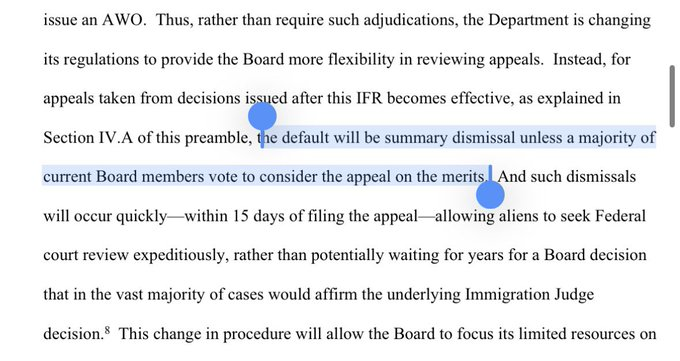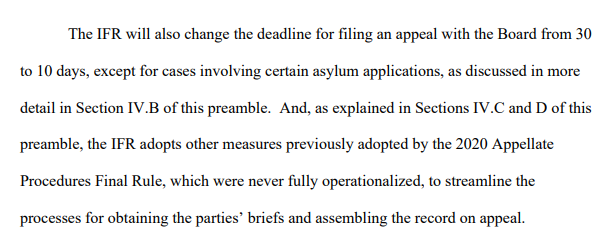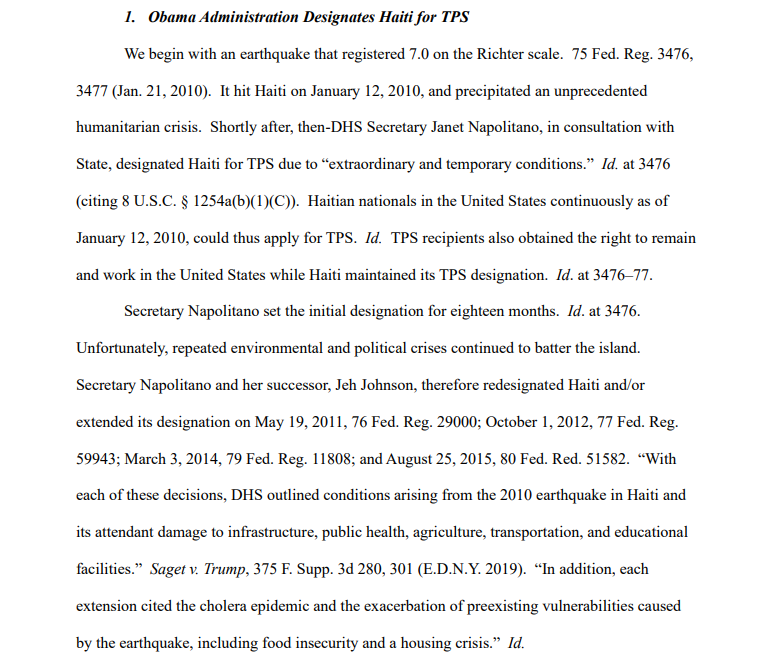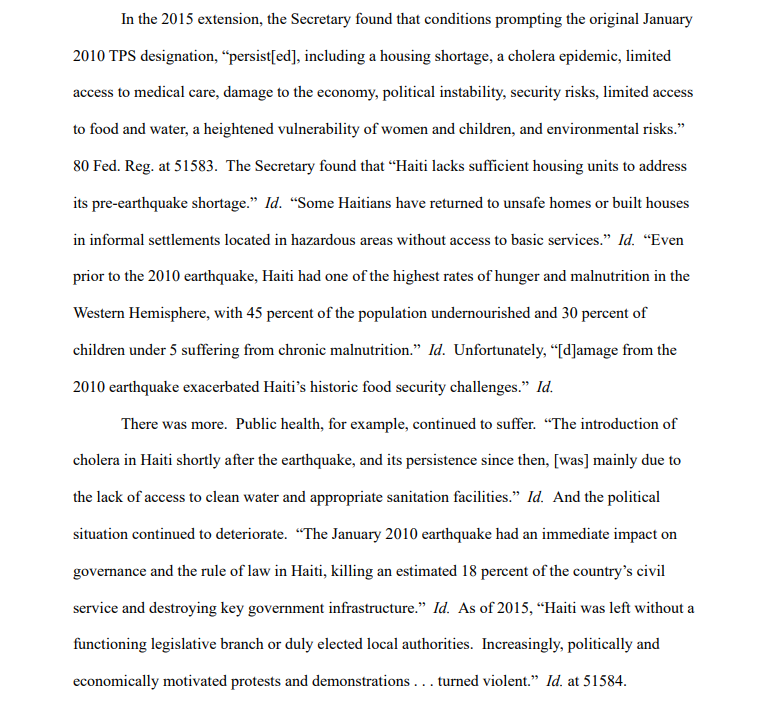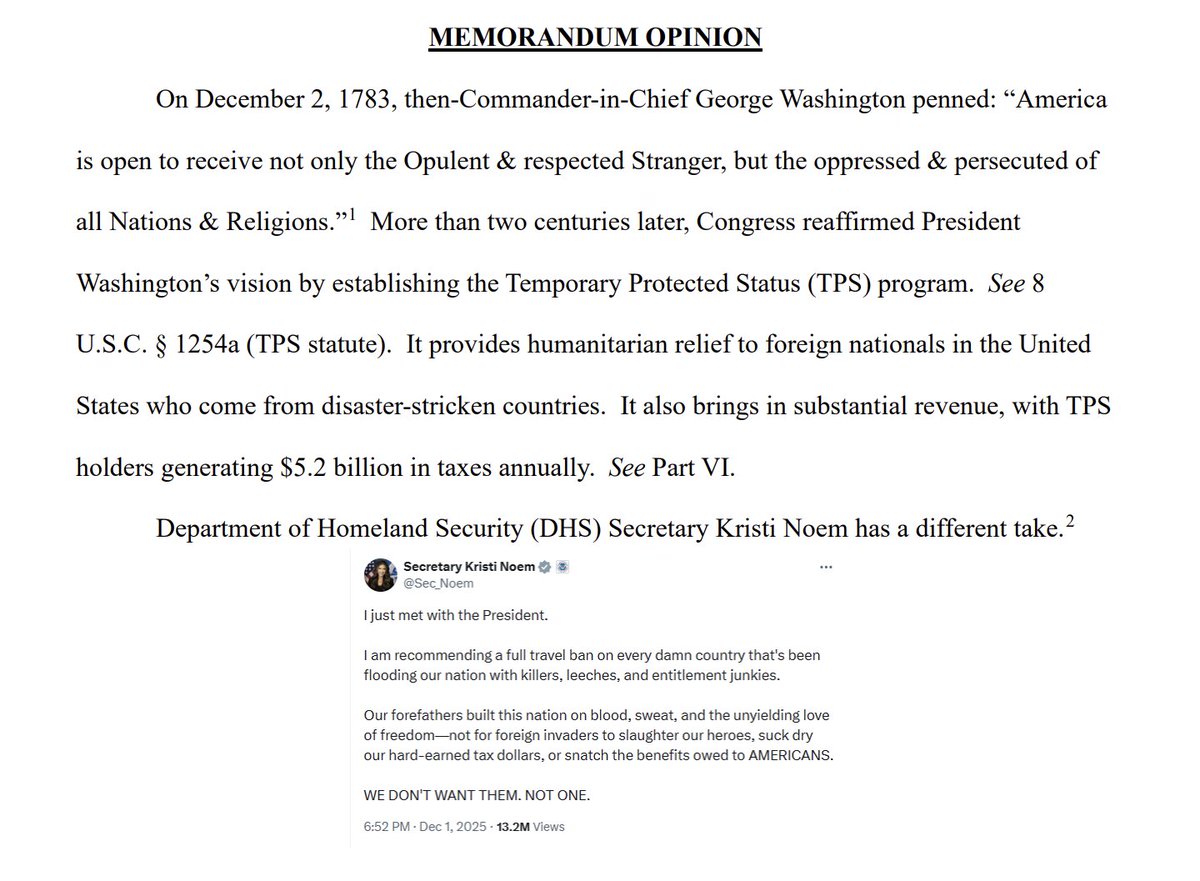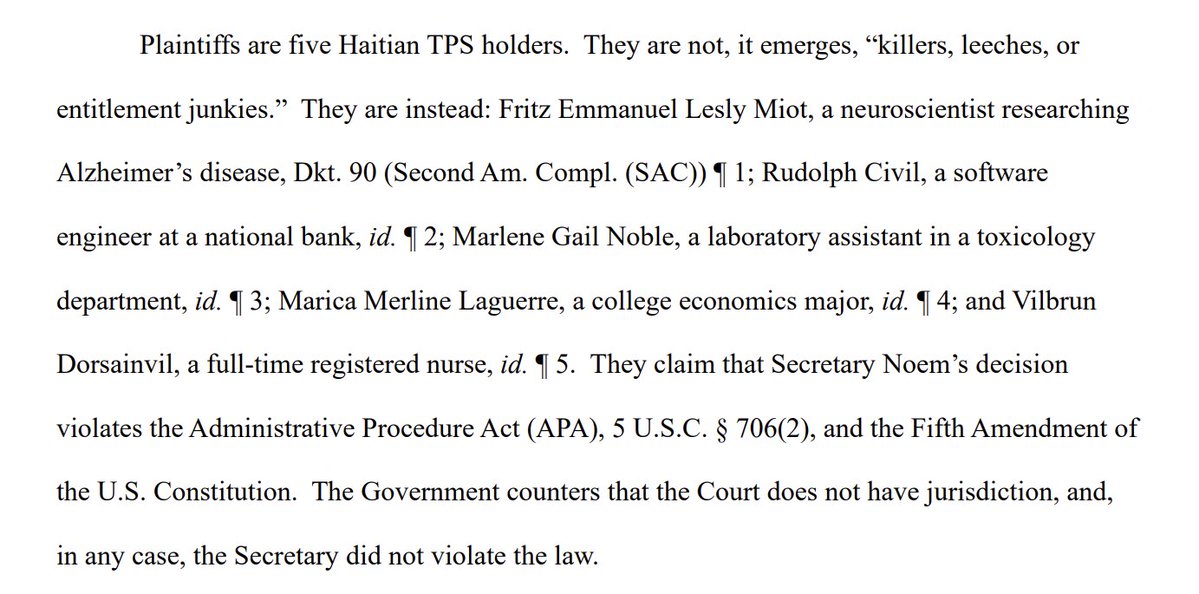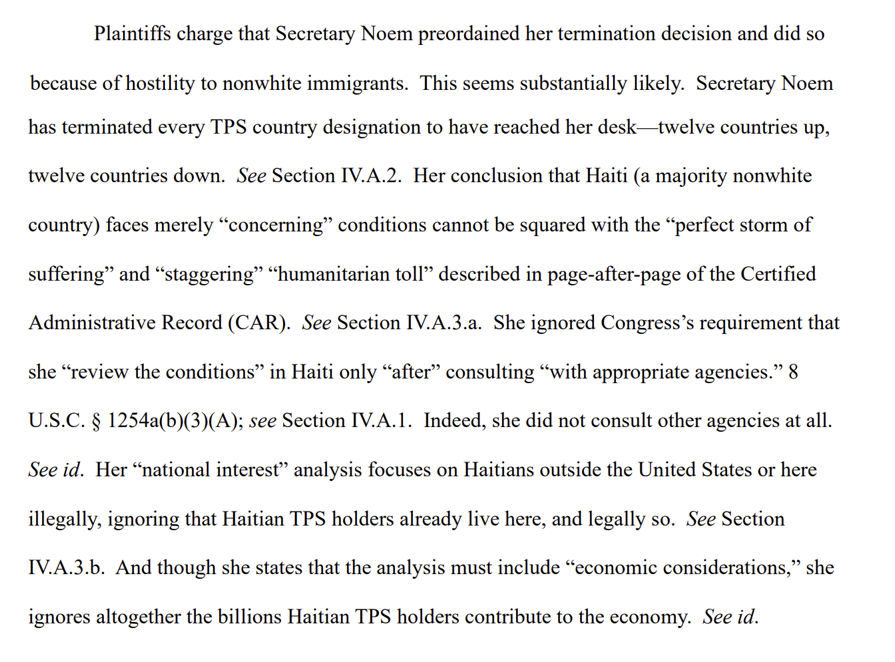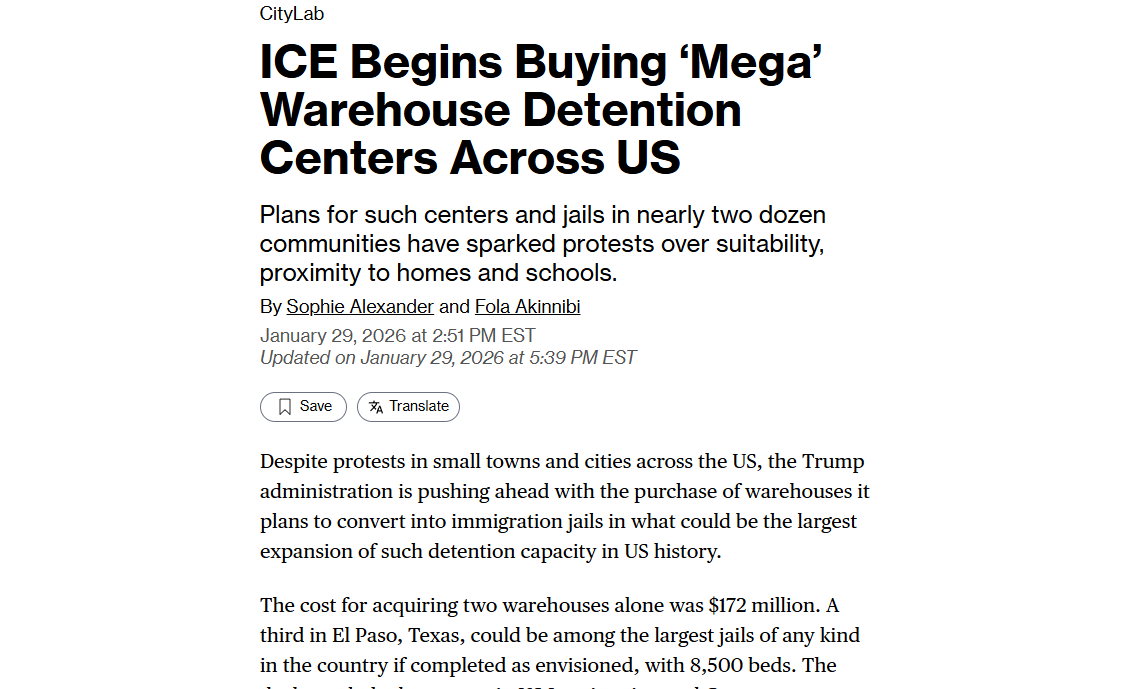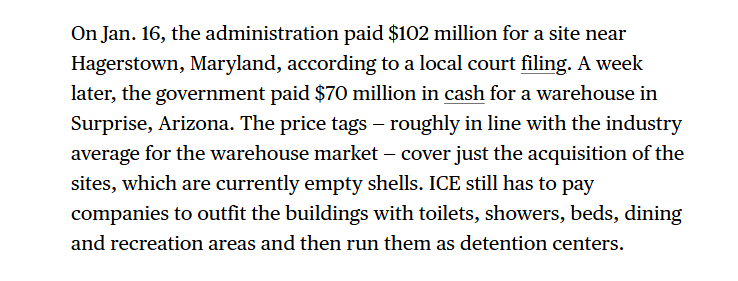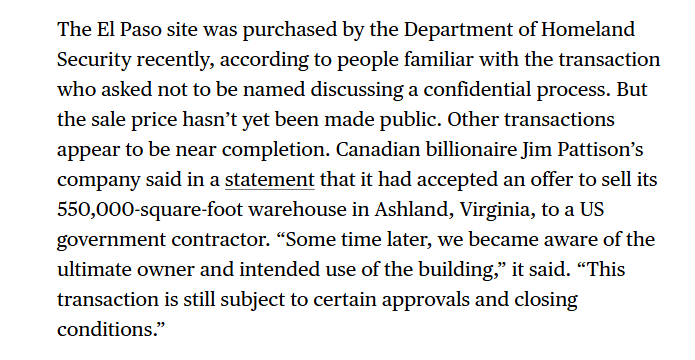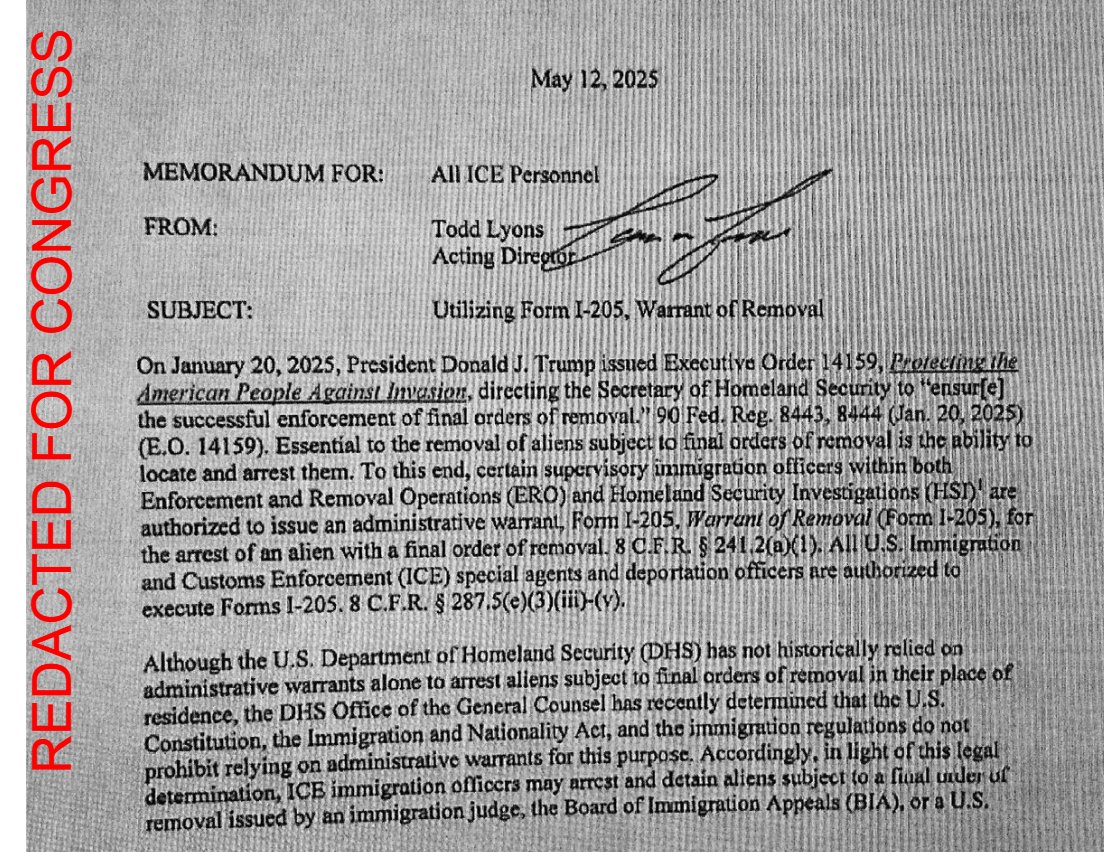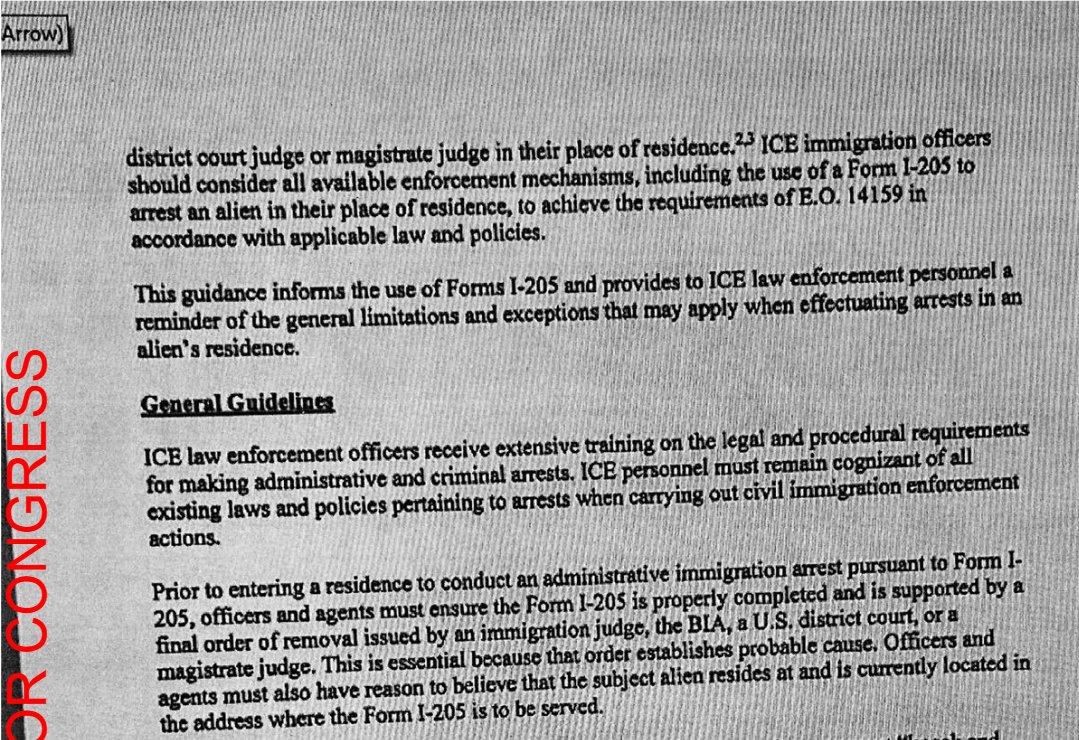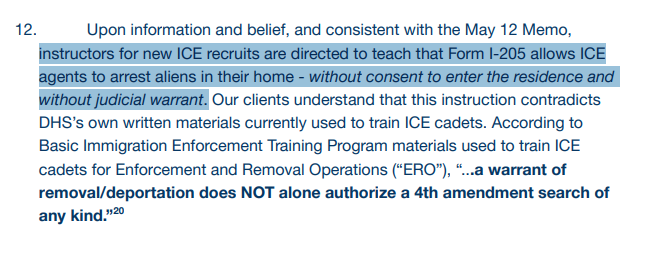The Biden administration's choice to expand Remain in Mexico to everyone from the Western Hemisphere—including Haitians—makes the program even broader than it ever was under the Trump administration.
Biden didn't just bring back Remain in Mexico. He's made it even worse.
Biden didn't just bring back Remain in Mexico. He's made it even worse.
https://twitter.com/camiloreports/status/1466422437235548175
To everyone responding to this saying Biden is just following what the Supreme Court told him to do:
- All the Supreme Court did was turn down a request to stop the lower court injunction.
- The lower court said Biden doesn't need to do the exact same implementation as Trump.

- All the Supreme Court did was turn down a request to stop the lower court injunction.
- The lower court said Biden doesn't need to do the exact same implementation as Trump.


The Biden administration will make some minor changes to improve Remain in Mexico, including allowing the tiny handful of people who manage to get lawyers (5-7%, compared to 60% inside the US) to have more meeting opportunities before hearings.
That... is not much of a help.
That... is not much of a help.

Okay, here's the formal guidance on MPP. I'm going to go through it and flag how it's better/worse than the original.
dhs.gov/publication/co…
dhs.gov/publication/co…
First, DHS commits to ensuring "timely" hearings for people in MPP. Of course, so did the Trump administration when it rolled out MPP. It promised hearings would be completed within 6 months. That fell apart quickly.
I rate this change as neutral; I don't believe it'll work.
I rate this change as neutral; I don't believe it'll work.

Next, DHS is changing the process exemptions from MPP due to persecution in Mexico.
- CBP officers will now ask people if they fear return (under Trump they weren't allowed to)
- The standard is now "reasonable possibility," not "more likely than not"
This as a positive change.
- CBP officers will now ask people if they fear return (under Trump they weren't allowed to)
- The standard is now "reasonable possibility," not "more likely than not"
This as a positive change.

Next, DHS promises to work with Mexico and international organizations to ensure people have shelters to go to and transportation to and from court hearings.
I rate this change as mostly neutral: there's no way it works in practice. Kidnappers will continue to prey on migrants.

I rate this change as mostly neutral: there's no way it works in practice. Kidnappers will continue to prey on migrants.


Next, DHS has "solved" the problem of family separation in MPP (with one family member sent to Mexico and the other allowed in or sent to ICE detention) by ... sending everyone back to Mexico.
I rate this change as neutral; solving one problem by creating another.
I rate this change as neutral; solving one problem by creating another.

Next, DHS says that it will basically go back to the Trump administration policy of expelling most migrants under Title 42 and subjecting those who can't be expelled to MPP.
I rate this as neutral; it's not a change.
I rate this as neutral; it's not a change.

Next, DHS says that MPP will resume at the exact same locations as under Trump.
Notably, Nuevo Laredo is even MORE dangerous today than it was when MPP started there in 2019.
So despite not being a change, I rate this as worse.
Notably, Nuevo Laredo is even MORE dangerous today than it was when MPP started there in 2019.
So despite not being a change, I rate this as worse.

Next, DHS says it will expand MPP to all individuals from the Western Hemisphere.
As I noted upthread, this is actively worse than what the Trump administration did, where originally it was just nationals of Spanish-speaking countries, and then later expanded to Brazilians.
As I noted upthread, this is actively worse than what the Trump administration did, where originally it was just nationals of Spanish-speaking countries, and then later expanded to Brazilians.

Next, DHS lists new vulnerability for those exempt from MPP. These categories are very similar to what they were under Trump, and CBP routinely violated even the narrow protections in place.
I fully expect CBP to ignore these exemptions this time around too. So neutral.
I fully expect CBP to ignore these exemptions this time around too. So neutral.

Next, DHS says that people will get COVID vaccines offered.
Since MPP never before operated under a time when vaccines existed, this is positive, I guess? But also irrelevant; vaccinations are now widely available in Mexico as well.
So I rate this as mostly positive?
Since MPP never before operated under a time when vaccines existed, this is positive, I guess? But also irrelevant; vaccinations are now widely available in Mexico as well.
So I rate this as mostly positive?

Next, DHS explains the new non-refoulment screening standards.
The major positive change is in points 1 & 2 here. It's also one that is going to immediately cause operational headaches for CBP, as nearly everyone will express a fear of returning to Mexico (with good reason!).
The major positive change is in points 1 & 2 here. It's also one that is going to immediately cause operational headaches for CBP, as nearly everyone will express a fear of returning to Mexico (with good reason!).

DHS further explains that migrants will now able to consult with lawyers before a non-refoulment interview to avoid being put into MPP.
Since less than 5% of migrants will have lawyers at this point, the consultation right is meaningless for majority, good for a small few.
Since less than 5% of migrants will have lawyers at this point, the consultation right is meaningless for majority, good for a small few.

Next, DHS explains its new "access to counsel" protections, which are a tiny fig leaf that does not solve the gaping problem that getting a US lawyer while stuck in Mexico in MPP is nearly impossible.
I rate this as a tiny bit positive, but mostly neutral. See meme upthread.
I rate this as a tiny bit positive, but mostly neutral. See meme upthread.
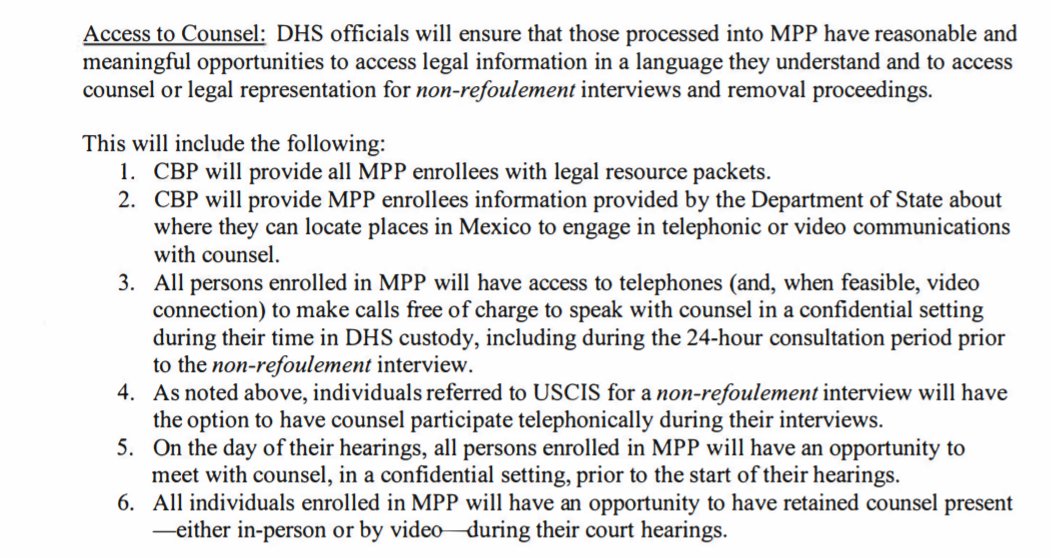
Finally, DHS says they will "align the number of new MPP enrollments with the number of cases EOIR says it generally can complete within 180 days."
What this means? Expect fewer MPP enrollments in San Diego/El Paso, more in Laredo/Brownsville.
I rate that as negative.
What this means? Expect fewer MPP enrollments in San Diego/El Paso, more in Laredo/Brownsville.
I rate that as negative.

Long story short? The new MPP guidance is mostly the same as the old MPP guidance, better in one specific aspect (non-refoulment interviews) and worse in others (expansion to Haitians and all Western Hemisphere nationals).
This is proof you can't make the inhumane, humane.
This is proof you can't make the inhumane, humane.
• • •
Missing some Tweet in this thread? You can try to
force a refresh



